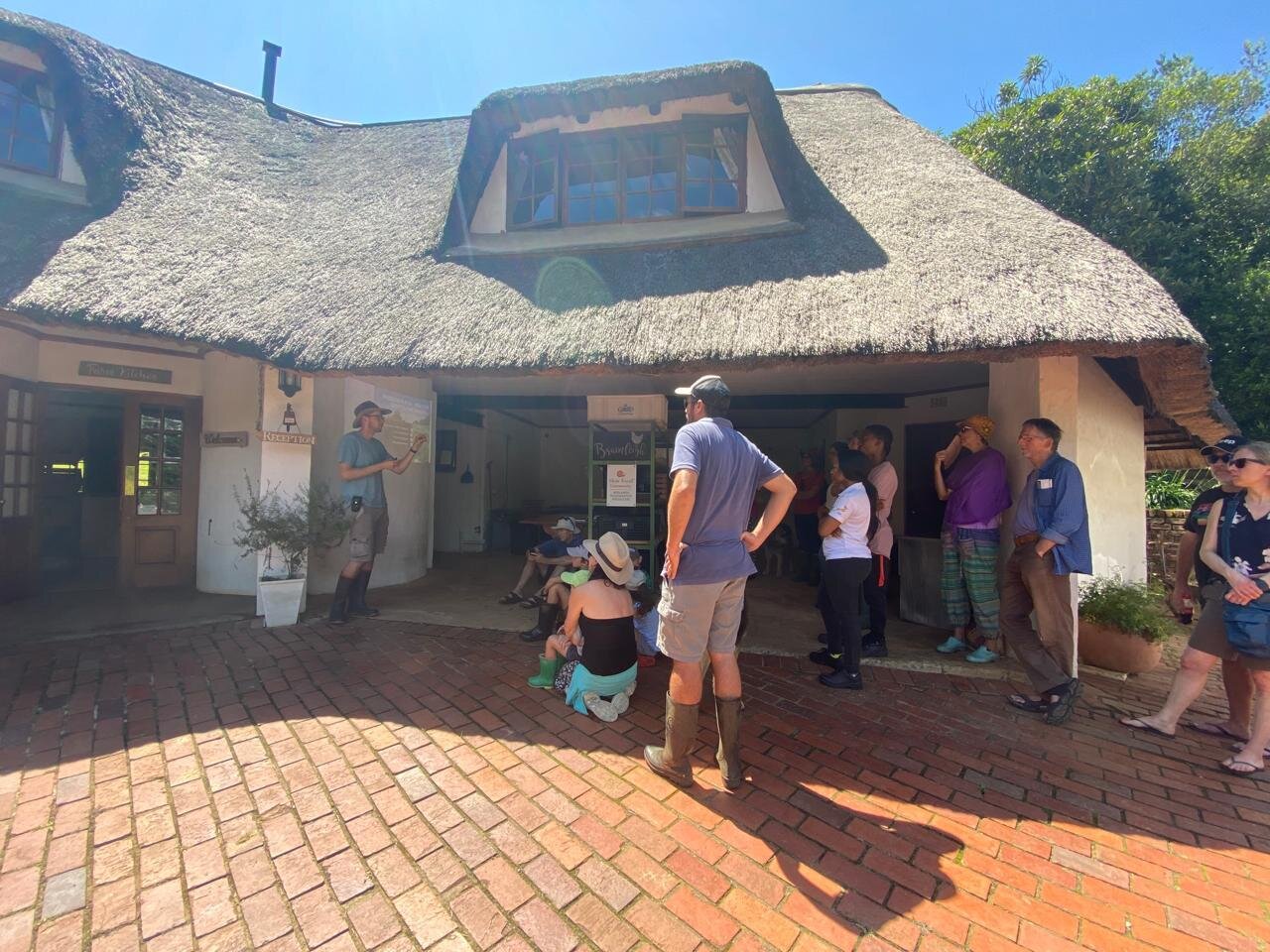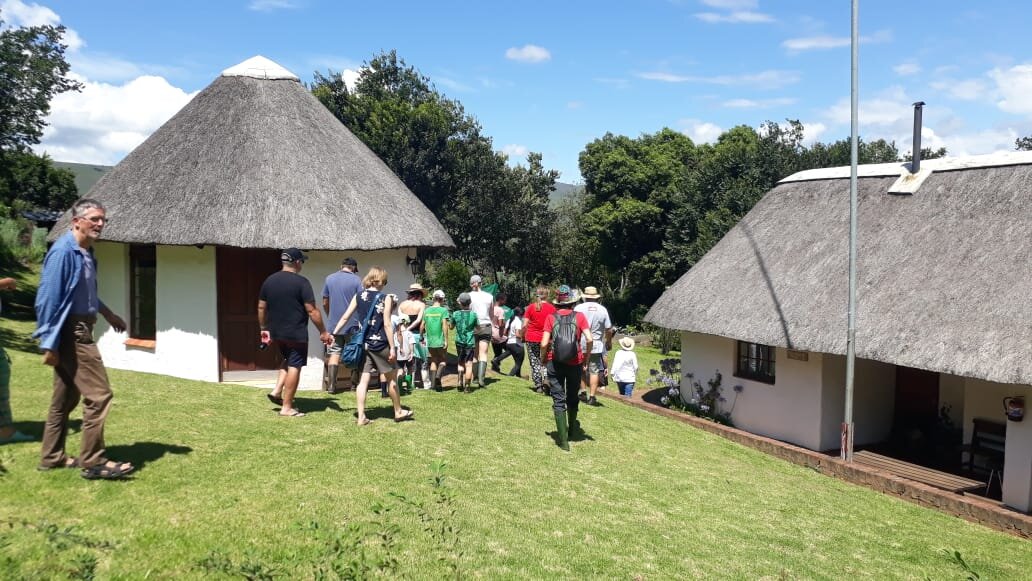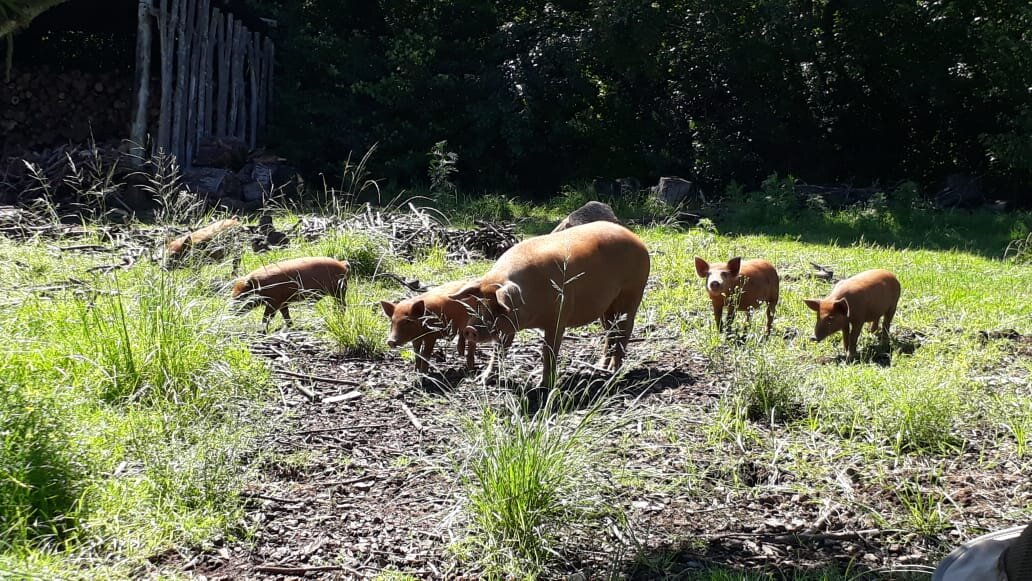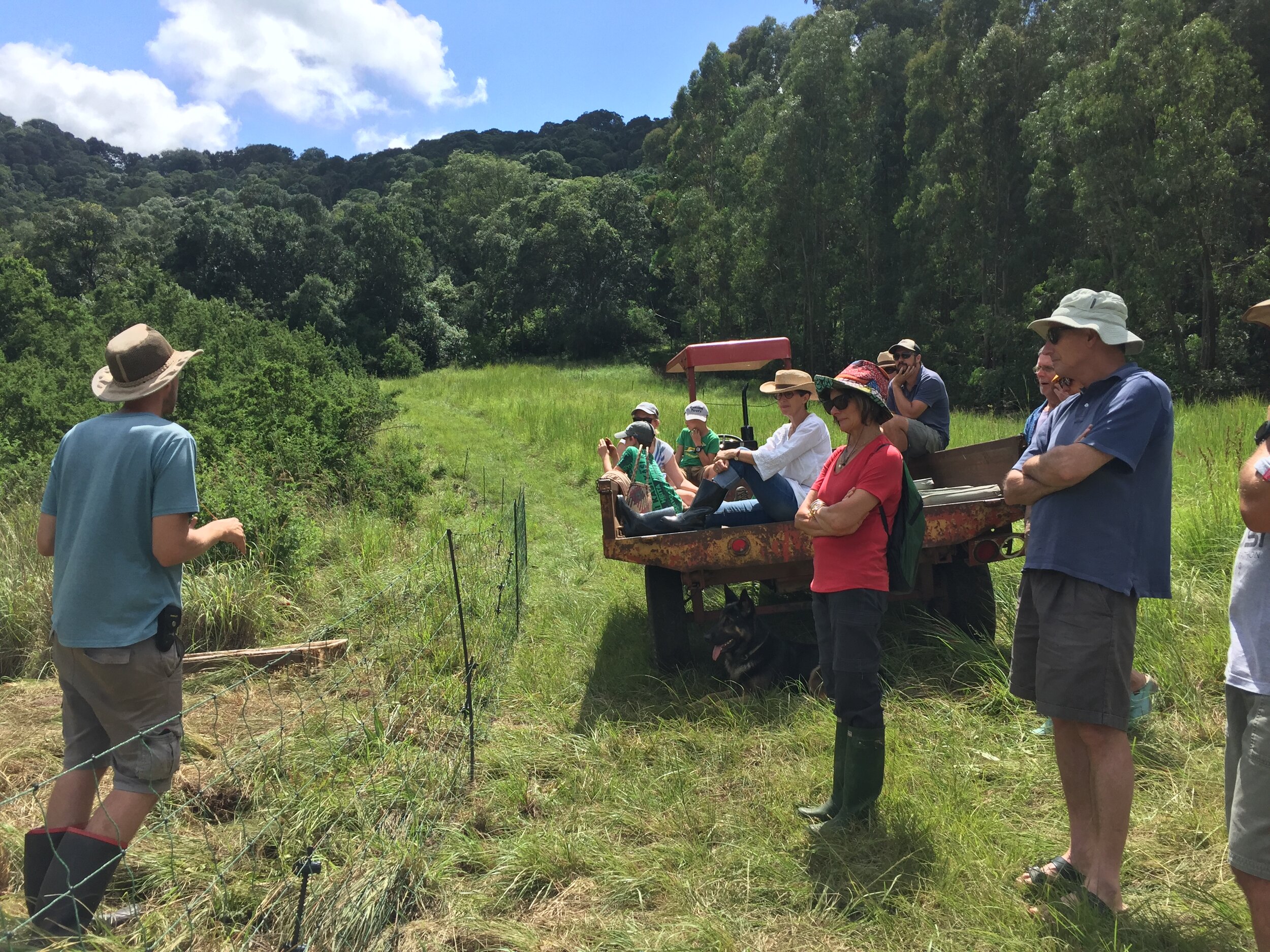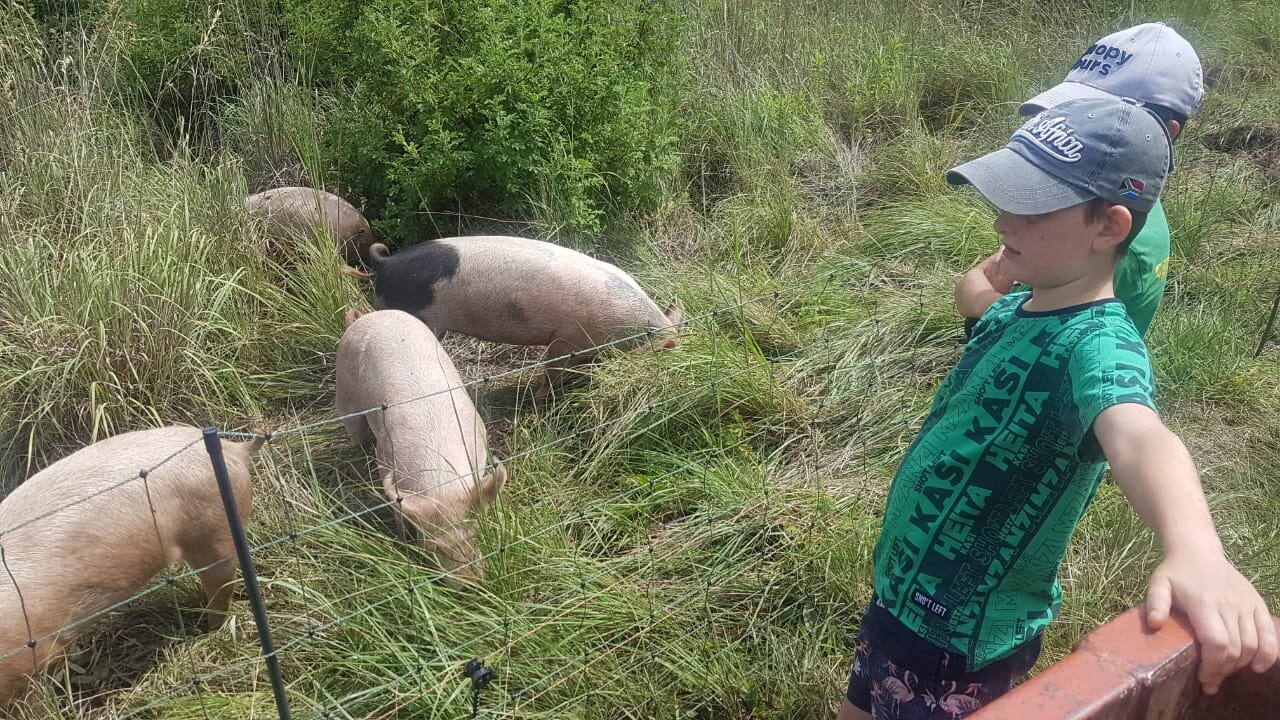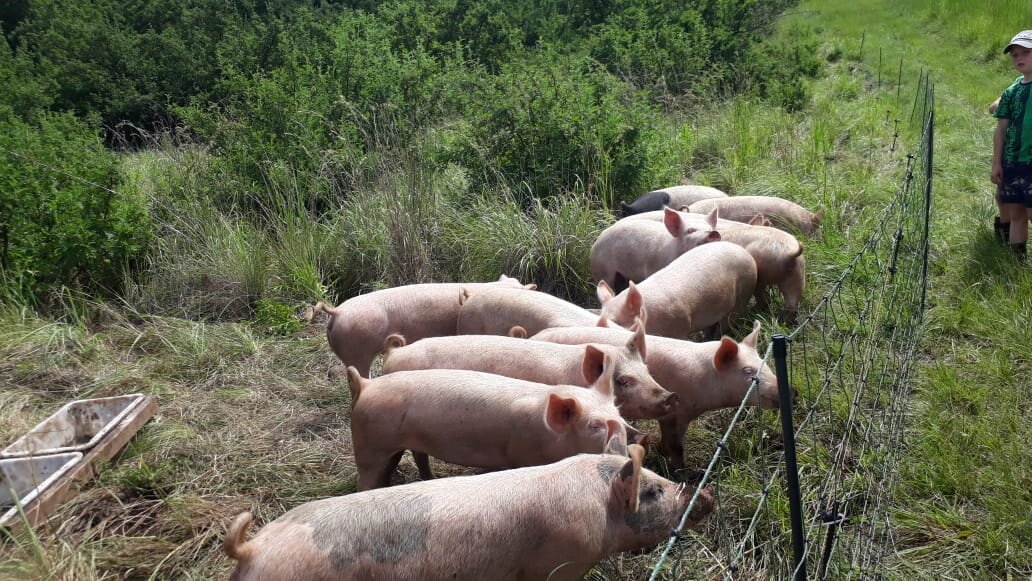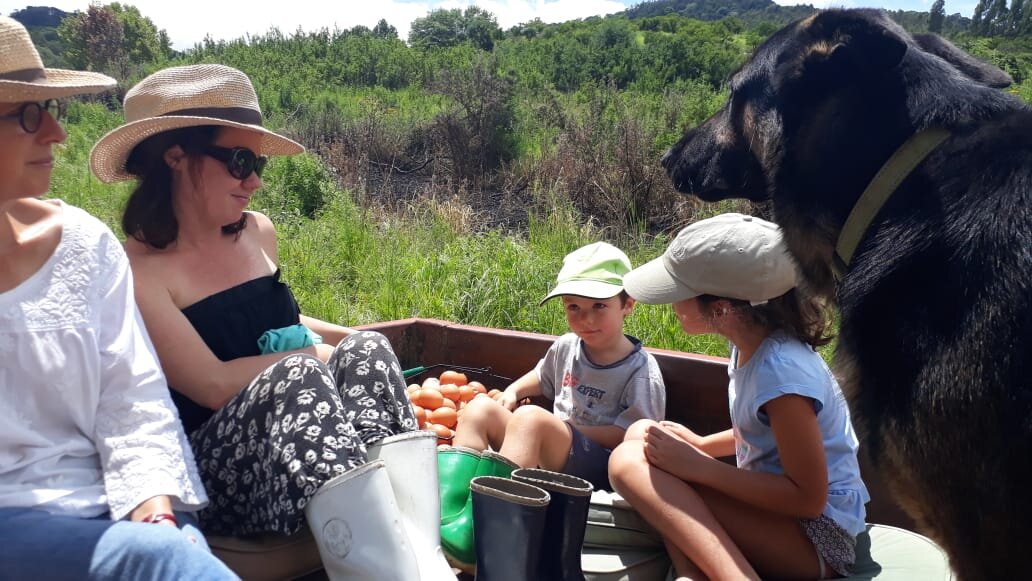Slow Food Farm Tour
After several days of heavy rain, and very wet and muddy roads, the day of our farm tour dawned warm and sunny, with much relief! The beautiful day was greeted by nearly 20 eager Slow Foodies and visitors to tour the regenerative practices of Bramleigh Farm.
We crammed the cars into the driveway in a “first in, last out” style, and I giggled as each person got out of the car in slops and proceeded to change into gumboots!
We started the tour with a brief history of how we came to be at Bramleigh Farm, why we chose to farm this way, and what regenerative farming really means. It is way more than just making your own compost, or not tilling the ground. We discussed carbon sequestration, intensive rotational grazing, restoring biodiversity, building topsoil, improving water retention, working holistically and with systems, reducing inputs, cycling, cover cropping, and lots and lots about the microbiology of our soil and world.
Then we all wandered through the orchard to see the Duroc piglets and soon-to-be breeding sow, Lady Petunia. This heritage breed does particularly well in a free range setting. We compared these pigs with our Large White-Landrace pigs who were out in the forest. The mobile infrastructure, moving, feeding, cover cropping, and soil building processes were all discussed at length.
Following this, everyone climbed onto the tractor trailer and we trundled off to see the chickens, trying to beat the heavy rain that was threatening.
Because of the previous days of heavy rain, and the forecast of more days of rain, unfortunately our pasture raised chickens were still tucked up in their brooder. When the chicks move from the brooder to the pasture, they need a day or two of warm dry weather, giving them the chance to acclimatise without the conditions being too unfavourable. They are very vulnerable at such a young age. The chicks were only just 2 weeks old so they could still afford a few more days in the brooder. Our guests had the chance to see our pasture raised chicken set up - have a look at the mobile shelters, the fencing, and we explained how we move them daily, how the feeding and watering works for mobile animals. Two days later, we posted photos to show our chicks being moved onto pasture.
Next up, the laying hens. By now the clouds were heavy and dark, providing these beautiful dramatic shots! In our group, was. a hen adopter - who instantly recognised her adopted hen that provides her eggs every week (wink wink!) While the children collected the eggs, the adults discussed how the chickens build topsoil through their natural behaviours, as well as leaving manure every time the mobile coop, the Egg Mobile, is moved. There were questions about the feed we use, how much grass a chicken eats, how they keep themselves clean, deworming, the nutrient density of eggs, packaging eggs, and where we source our hens.
We all clambered back onto the tractor for a slow and steady journey back up the hill to enjoy some tea, coffee, and homemade muffins while chatting and sharing thoughts.
As the last car drove down the driveway, the big drops of rain started to fall.
I’m not sure who came away having learnt more - the Slow Foodies learning about their food origins, or us learning about what is important to our customers, as well as advice from other farmers and producers in the group. We’ve even had people from this group joining REKO too! What an experience to get to spend the morning with people who support your dream every week, and helping educate others to start an animal friendly, environmentally friendly business!


